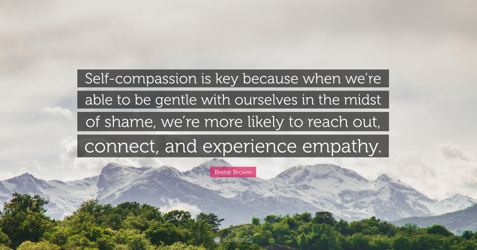We are currently surrounded by hearts, chocolates, roses and all manner of pink and red gifts for Valentine’s Day. This is wonderful for any of us who are lucky to be in a romantic and happy relationship, but what about those of us whose relationship is not great, those who are single, bereaved or lonely? Whatever your situation, the best gift you can give yourself this Valentine’s Day is the gift of self-compassion.
Generally speaking, we don’t tend to be good with self-compassion. We worry that others might see us as arrogant, selfish, or narcissistic. We may have been raised in abusive or unloving homes where self-compassion was neither encouraged nor modelled for us. We may also have experienced bullying or domestic abuse later in life which has eroded our ability to offer ourselves compassion.
If we struggle with self-compassion there is a higher risk that we will experience problems with depression, stress, anxiety and burn out. This is something which I see time and time again in my therapy room.
Over the past couple of years I have become interested in Compassion Focused Therapy, a relatively recent development of Cognitive Behavioural Therapy which emphasises the development of self-compassion. This approach focuses on overcoming shame, guilt and self-criticism by understanding why you may have got into particular habits of thinking and behaving. There is also an emphasis on the impact of evolution and our wonderful but ‘tricky’ brains, which don’t always help us to feel or act in ways we would like to. With an increased understanding of our habits and biology we can work towards being more self-accepting, giving ourselves the compassion we need to live happier and healthier lives.
One of the difficulties which people can have with self-compassion is the habit of prioritising everyone else’s needs over their own; often caring for friends and family, running here there and everywhere, and then finding themselves feeling exhausted and burnt out.
Think about what happens when you go on holiday. Just before the flight takes off, the attendants explain the safety procedures and tell you that if the oxygen masks are needed then put yours on first, then help others with theirs. The same is true in day-to-day life – you can’t care for others if you don’t take care of yourself.
Another habit which can get in the way of self-compassion is self-criticism and judgement. Sadly I often hear people speaking to themselves in ways they would never speak to others such as: “I’m worthless”, “I’m ugly”, and “I’m stupid”.
Research shows that if we can be less self-critical and more self-compassionate then we can have greater emotional resilience and achieve more in our lives.

Steps towards self-compassion …
Try to notice how you talk to yourself and ask yourself ‘would I speak to a loved one like that?’ If the answer is no then find kinder ways of speaking to yourself.
It may help to think about your favourite cartoon, story or film: which of the characters would best represent your self-critical voice? Which of the characters is more caring and self-compassionate? I’m a big Alice in Wonderland fan, so I always think of my self-critical voice as being like the Red Queen and Alice is my more self-compassionate voice. This can be a light hearted way to help us to take a step back and play around with our self-talk.
Prioritise time for doing things which you find rejuvenating. This is different for everyone but may involve taking a walk in nature, reading a book, having a coffee in your favourite cafe, playing football or booking tickets to see your favourite band.
To make this time for yourself you may need to cut yourself some slack in your schedule. Ask yourself: do I really need to do that? Will it be the end of the world if I put that off for a little while? Be aware of telling yourself you ‘should’ be doing X, Y and Z.
Practice mindfulness – this helps us to activate what Compassion Focused Therapy refers to as our ‘self-soothing’ system, and helps to dial down our ‘threat’ system. Mindfulness allows us to become more focused on the present moment and to be more aware of what is happening in our minds and bodies. Please see my previous blog for more information on mindfulness and useful resources.
Keep a self-compassion journal – this is a great way to dedicate some time to yourself and it gives you the opportunity to process situations and your reactions to them. This increased understanding of yourself fosters self-compassion and a gentler approach to life.
Explore these resources …
Books
The Compassionate Mind by Paul Gilbert
The Power of Self-Compassion by Mary Welford
The Gifts of Imperfection by Brene Brown
The Mindful Self-Compassion Workbook by Kristen Neff and Chris Germer
Websites

